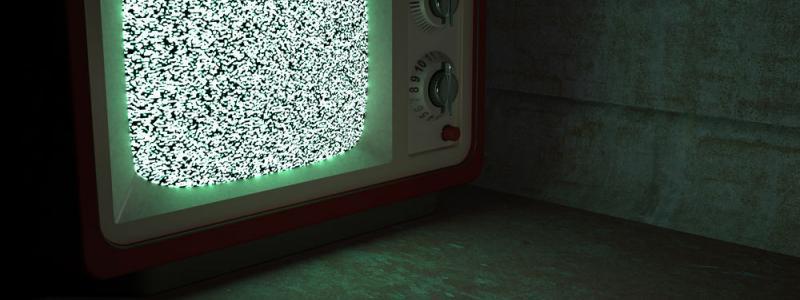How Do You Fix a Buzzing TV?

Fixing a buzzing TV is a problem that most American homeowners have at some point, and you must be aware of signs your TV is going bad. This article explores why your TV may be making those noises.
#1: Check Your Speakers
The speakers on your TV can break down at any time, and the wires that run to the speakers must be checked for stability. The internal wires for your speakers must be frayed, and the speakers themselves may not be damaged. The dome on each speaker must be in good condition, and you must check the speakers for sound production. You may place your ear near the speaker, and you can hear the buzz inside the speaker at a low volume.
You may replace one of the speaker heads, one of the wires or the casing. The casing over the speaker may rattle, or the wires inside the speaker may not work properly. You can replace the wires yourself by sliding them into their selected slot, and the casing can be replaced with a duplicate.
#2: Check the Screen
The screen on your TV can buzz when it is not attached to the frame properly, and the screen could rattle when it is falling out of the frame. The screen could be cracked, and the cracked glass on the screen will rattle against itself. A cracked screen can be replaced, and a loose screen can be glued into place. Your frame may not fit the screen well, and a professional repair technician can tighten the frame for you. Check the frame for stability, and ensure that the screen is not falling out of the TV when you hear the rattle.
#3: Is The Interior Of The TV Broken?
The interior of your TV may be broken in some way, but the interior pieces may not be easy to see. You must remove the rear portion of the TV when you are looking for broken parts, and the broken parts will rattle when the volume is turned up really loud on the TV. The interior parts of the TV can break at any time, but you can find the broken pieces of the TV inside the frame with a simple search.
#4: Check The Plug
The plug on your TV could be frayed, and the plug itself may create a buzzing sound when it is plugged into the wall. The buzzing sound you hear it electricity traveling down the cord. A fray in the wire will expose electricity to the air, and you will hear a slight buzzing sound that is hard to place. The cord can be replaced by a professional TV repairman, or the cord can be taped to prevent the buzzing in the future.
A buzz in your cable may be due to the outlet, and you must check the outlet to ensure it is putting out the proper voltage for your TV. An outlet that is not working well will buzz, and parts of your TV many begin to malfunction. This small problem will manifest itself throughout the TV, and you may think the TV is broken.
#5: Check The Antenna
The antenna on an old TV may rattle because of its sheer size, and you must ensure that the antenna is not tapping another part of the TV or the wall. You may confuse yourself when you think there is something wrong with the TV, and putting the antenna back in its place is the best way to stop this problem from occurring again. You may remove the antenna yourself, or a professional technician can repair the antenna for you.
The problems you find within your TV must be repaired as soon as possible, and you may check your TV for the buzzing sound you have found. Your family cannot enjoy the TV properly if it buzzes constantly, and you may find the source of the buzzing with relative ease. Using the steps in this article will help you take good care of your TV now and in the future.
Related Blog Articles
- Your Guide To iOS 9’s Features
- How Apple’s iPhone Upgrade Program Can Change Things
- iOS 9 Now Adopted By Over Half Of All Apple Mobile Devices
- T-Mobile’s New Promo May Be Best iPhone 6s Deal Yet
- Smartphones, Tablets Now Most Popular Gaming Devices For Kids
- Sprint’s $1 A Month iPhone 6s Deal May Even Be Better Than T-Mobile’s
- Why You Should Learn To Disable The Wi-Fi Assist Feature On iOS 9
- Are The New iPhones Waterproof?
- Are Cable And Mobile Companies Going To Converge In The Future?
- Resales Of Old iPhones Could Increase In Next Few Years


 Menu
Menu